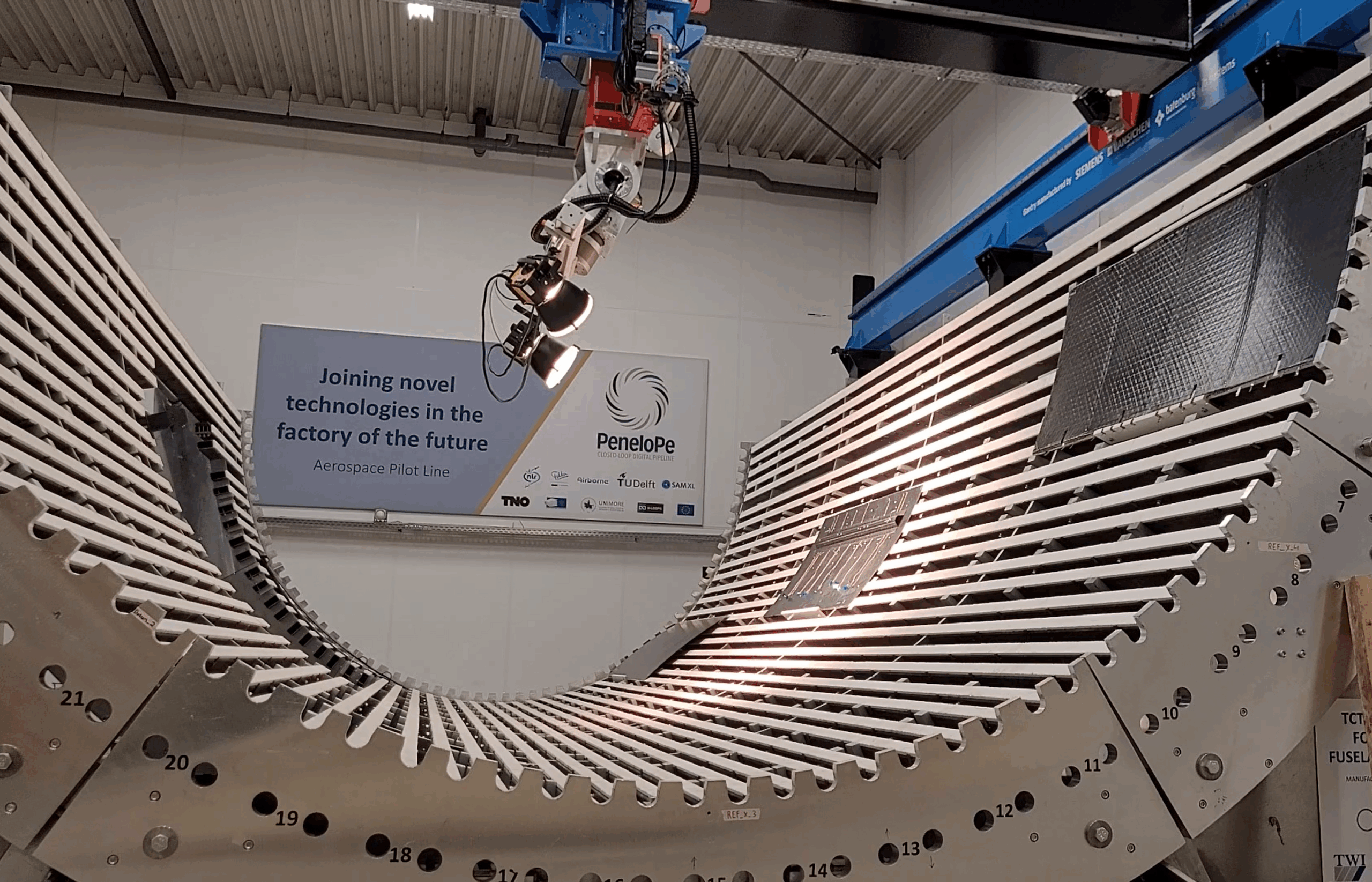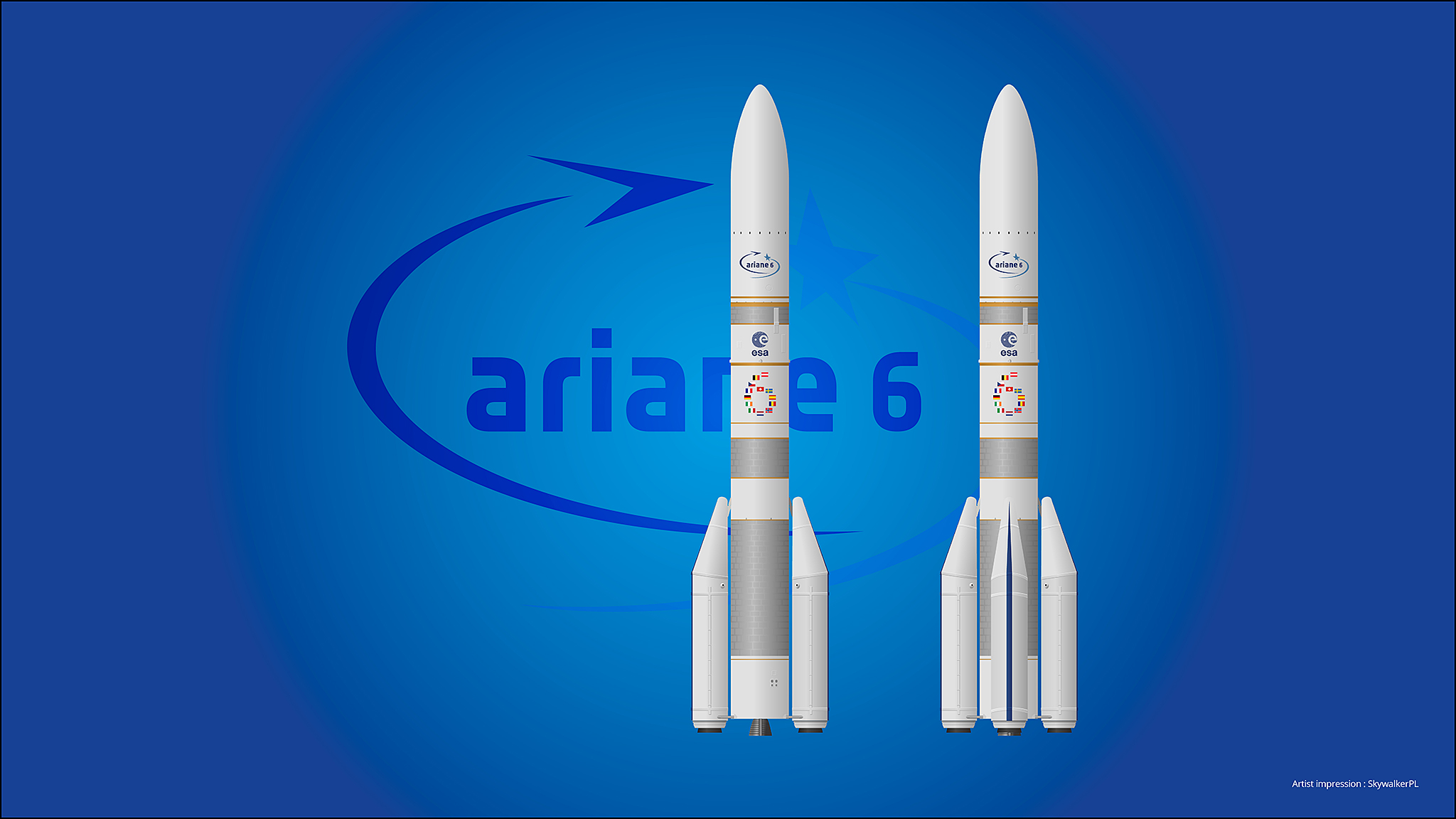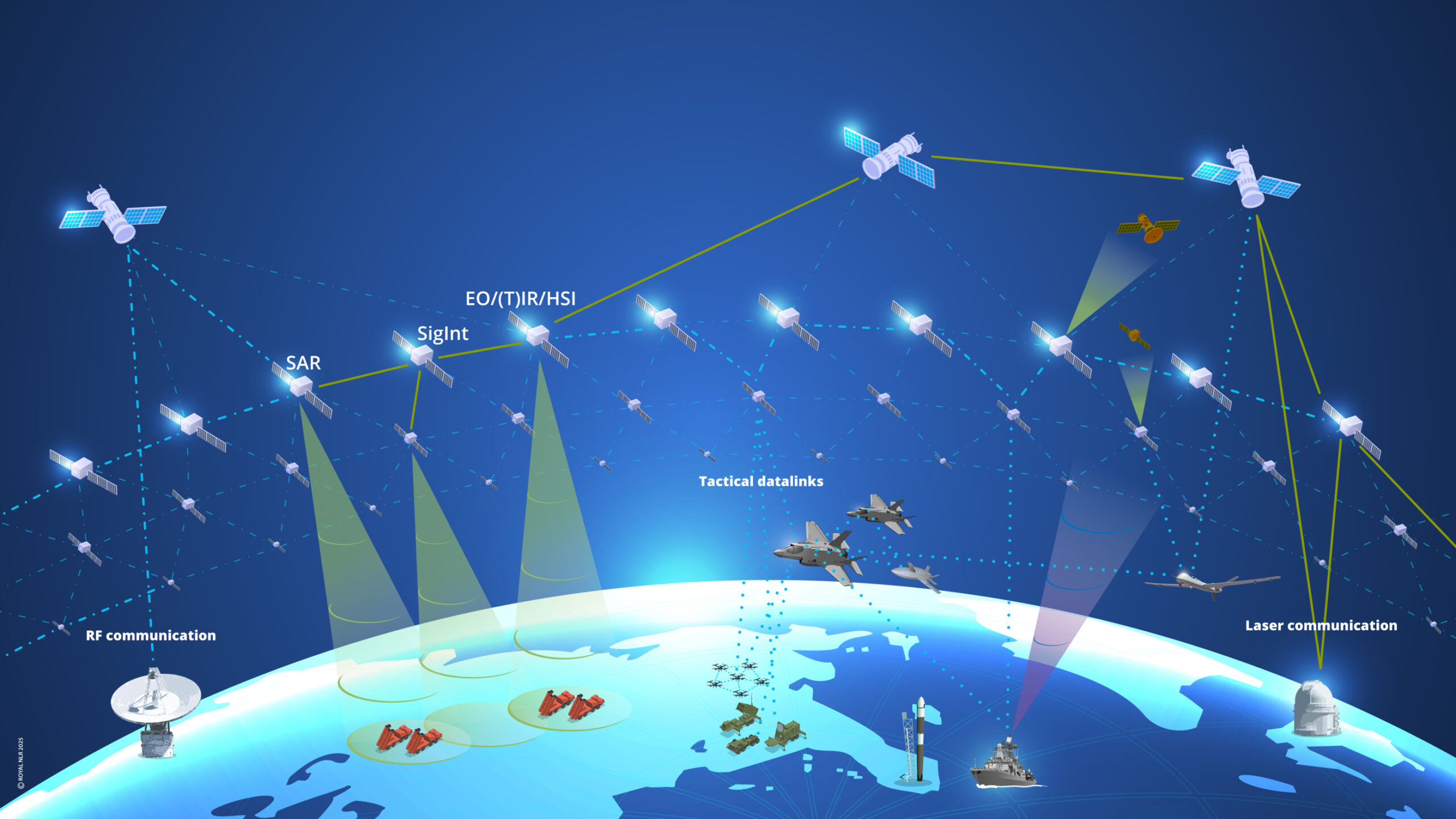Project: PENELOPE (Closed-loop digital pipeline for a flexible and modular manufacturing of large components)
Automation of non-destructive and in-line inspection of aircraft composite parts contributes to efficient high-volume aircraft production, such as expected for the next-generation short-medium range (SMR) aircraft with entry-into-service in 2035. However, automation can also be cost-effective for smaller production volumes, as it enables faster detection of quality issues during production, consequently reducing rework and waste.
The challenge
Large-scale parts manufacturing requires holistic data management and an integrated automation methodology to achieve the desired precision levels using modular and more flexible equipment. Non-destructive testing (NDT) is crucial in the production of aircraft composite parts. However, current NDT methods are slow, labor-intensive, and not suitable for in-line inspection. Additionally, generated inspection results, such as scans, require human interpretation, which is strenuous and time-consuming, highlighting the need for better methods to improve production efficiency and accuracy in this process.
The solution
The fast non-destructive inspection of composite parts demonstrated using thermographic methods in a realistic pilot line for fuselage assembly, which was used for the JEC 2025 Award winning Multifunctional Fuselage Demonstrator (MFFD). Key findings include:
- Robotised inspection during production is possible, generating automated thermographic scans.
- Thermography enables detection of common defects for thicknesses commonly applied in aircraft structures.
- Fast interpretation of automated inspection scans can be supported by artificial intelligence (AI).
- AI can be trained efficiently using a combination of real and simulated thermographic data.
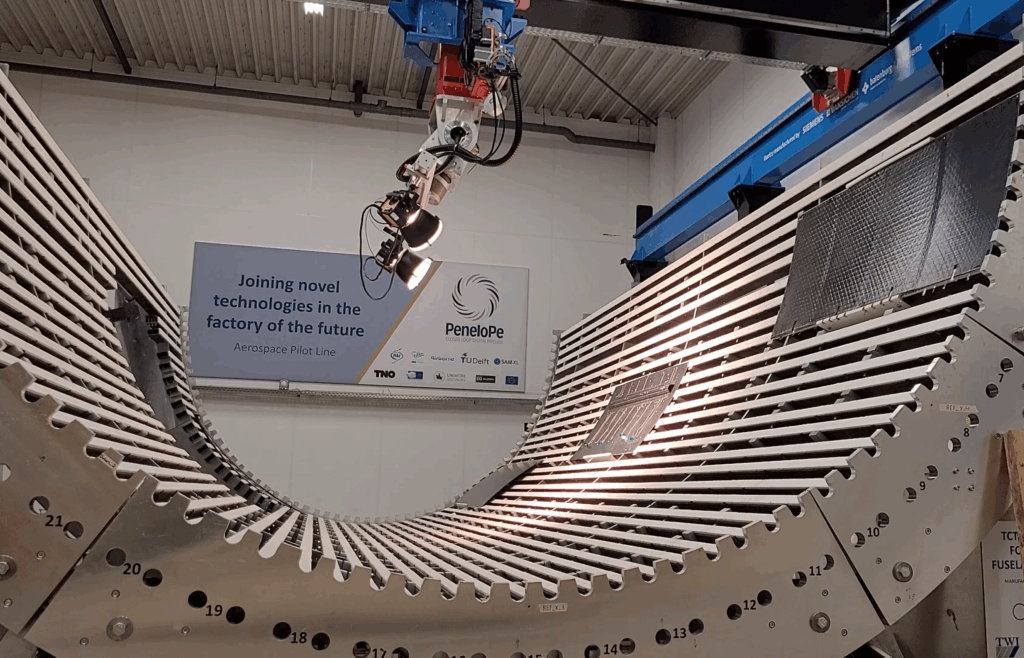
What did we do?
NLR has developed an innovative approach for fast non-destructive testing of (large) composite parts, using automated thermography to detect defects in aircraft fuselage skins. We utilised a robot to scan large sections of the composite structure in one go, generating automated thermographic scans.
AI was then used to analyse the scan results allowing for faster detection of defects – this method is ten times faster than the conventional ultrasonic method. Finally, a dataset of real and simulated thermographic data was collected and prepared to train the AI algorithms.
Project partners:
Project coordinator: AIMEN (ES)
Click here for all 31 partners in the consortium
Project timeline:
2020-2025
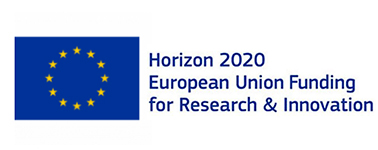
The PENELOPE project has received funding from the European Union’s Horizon 2020 research and innovation programme under
GA No. 958303.
